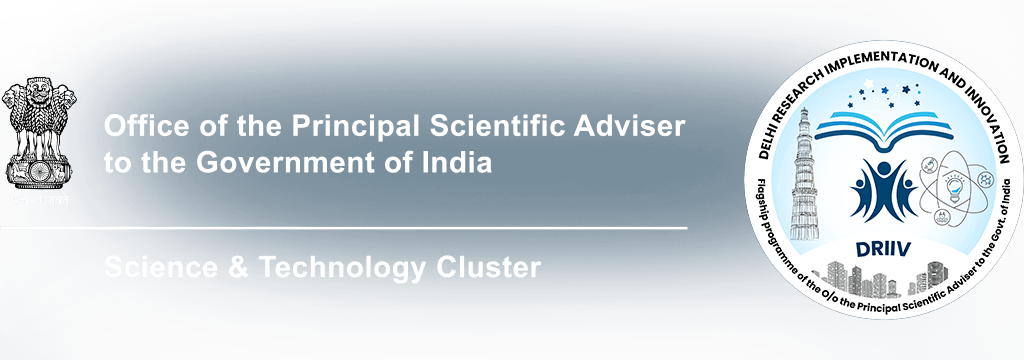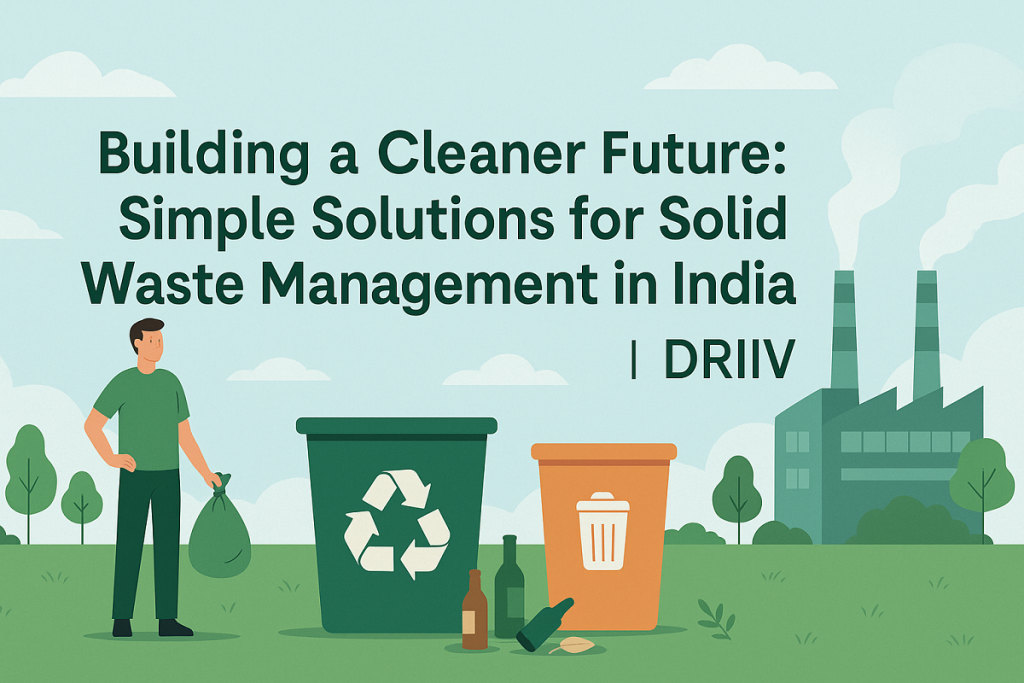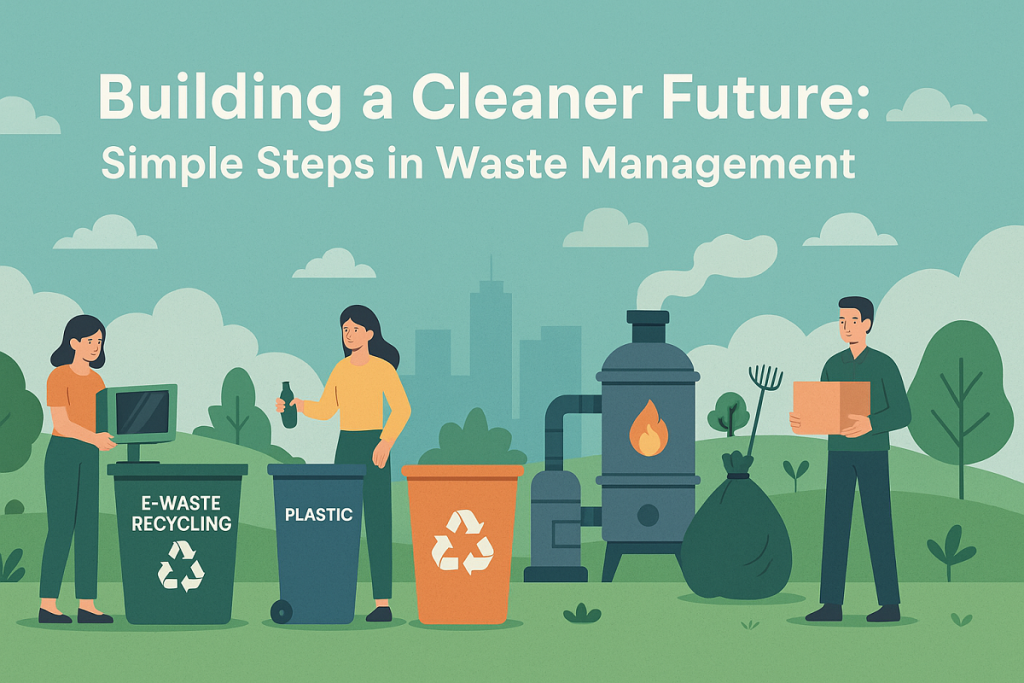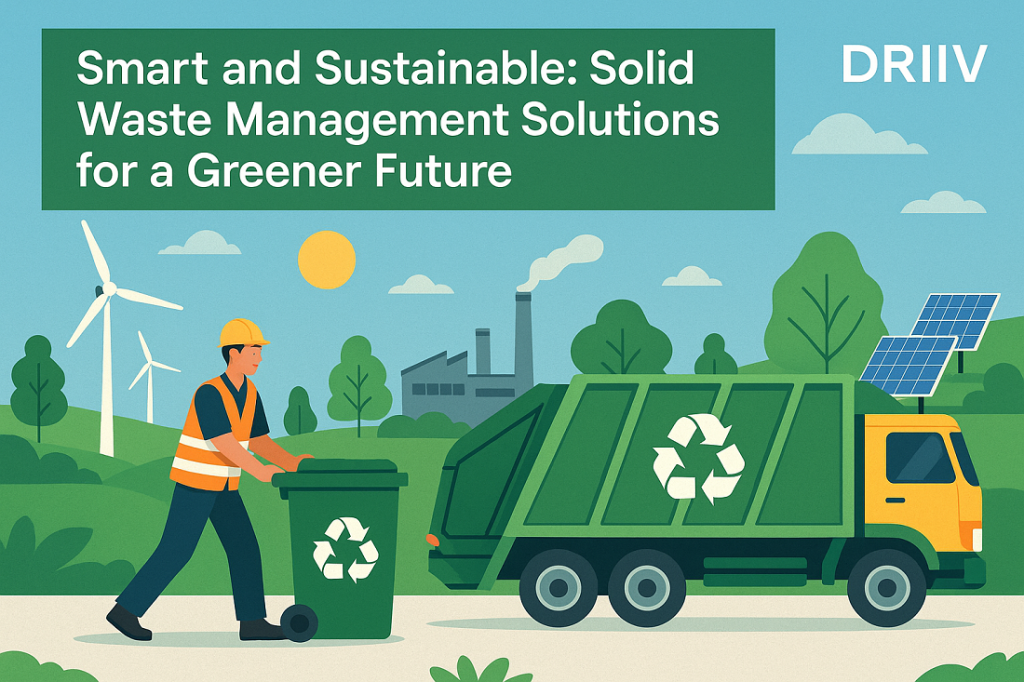India is growing fast in technology and development. But with growth comes a big problem—waste. Today, waste is everywhere—in our homes, offices, streets, and even rivers. To build a cleaner and greener India, we need smart and simple waste management solutions. At DRIIV, we focus on solid waste management using innovative, eco-friendly technologies and local involvement.
In this blog, we will explain some simple and powerful ways to handle waste, including E-Waste Recycling, Plastic Waste Management, Bio-mining, Community Engagement, Plasma Pyrolysis, Sustainable Packaging Solutions, and Decentralized Solid Waste Management.
Why Solid Waste Management Matters
Solid waste includes plastic bags, old electronics, kitchen waste, construction material, and many other unwanted things. If we do not manage waste properly:
- It pollutes land, water, and air
- It harms human health and animals
- It adds to climate change problems
- It damages natural beauty
That’s why solid waste management is a very important part of building a clean and sustainable India.
1. E-Waste Recycling
Every year, India generates thousands of tons of electronic waste (e-waste). This includes old mobiles, TVs, computers, wires, and other gadgets.
What is E-Waste Recycling?
E-Waste Recycling means collecting old electronics and taking out useful parts like metals and plastic so they can be reused.
How It Helps:
Reduces pollution from toxic materials like lead and mercury
Saves energy and natural resources
Creates jobs in recycling centers
DRIIV’s Role:
At DRIIV, we support startups and local companies working in E-Waste Recycling by offering technology support and knowledge sharing.
2. Plastic Waste Management
Plastic is strong and cheap, but it does not break down easily. It stays in the environment for hundreds of years. Plastic Waste Management is a key step to protect our earth.
What is Plastic Waste Management?
It includes collecting, sorting, recycling, and reducing plastic use.
Best Practices:
- Use cloth bags instead of plastic
- Recycle used plastic bottles
- Say no to single-use plastics
DRIIV’s Role:
We help promote new Plastic Waste Management solutions like biodegradable plastic and smart sorting machines.
3. Bio-mining
Old landfills are full of garbage that creates a bad smell and pollution. Bio-mining is a modern method to clean up these landfill sites.
What is Bio-mining?
Bio-mining uses natural bacteria, enzymes, or microbes to separate useful and harmful parts of old garbage.
Benefits:
- Recovers land for better use
- Reduces methane gas from waste
- Protects underground water
DRIIV’s Role:
DRIIV works with government bodies and tech teams to support Bio-mining as a green and cost-effective way to clean legacy dumpsites.
4. Community Engagement
No waste management system works without the help of people. Community Engagement means involving citizens in the process of cleaning and waste management.
Why It’s Important:
- People learn how to separate dry and wet waste
- More support for local waste collection systems
- Less dumping of waste in open areas
How DRIIV Engages Communities:
- Running awareness campaigns
- Supporting local NGOs and schools
- Promoting smart bins and waste segregation at source
Community Engagement is the heart of sustainable waste solutions, and DRIIV believes in people-powered change.
5. Plasma Pyrolysis
Some waste materials are dangerous and hard to handle, like medical or chemical waste. Plasma Pyrolysis is a high-tech method to destroy this waste safely.
What is Plasma Pyrolysis?
It uses very high temperatures to convert waste into harmless gases and ash. It does not burn the waste but breaks it at a molecular level.
Advantages:
- Kills harmful germs and toxins
- Reduces volume of waste
- No harmful smoke or ash
DRIIV’s Contribution:
We help build awareness and promote the use of Plasma Pyrolysis in hospitals and industries where hazardous waste is a big issue.
6. Sustainable Packaging Solutions
Many companies use plastic packaging that adds to environmental damage. Sustainable Packaging Solutions are eco-friendly ways to pack goods using less harmful materials.
What are Sustainable Packaging Solutions?
They include using:
- Recycled paper or cardboard
- Plant-based packaging
- Minimal and reusable designs
Why It Matters:
- Reduces plastic waste
- Supports circular economy
- Gives a green image to businesses
DRIIV’s Vision:
We collaborate with companies and startups to adopt Sustainable Packaging Solutions that are better for both the planet and the consumer.
7. Decentralized Solid Waste Management
Big cities find it hard to handle all the waste in one place. Decentralized Solid Waste Management is a method where waste is managed locally, in small units.
How It Works:
- Each colony, office, or society handles its own waste
- Waste is treated on-site using compost pits or biogas plants
- Reduces transport and landfill pressure
Benefits:
- More efficient waste handling
- Less pollution from transportation
- Better community control
DRIIV’s Efforts:
We help set up Decentralized Solid Waste Management units using smart and low-cost technology. This includes solar composters, shredders, and real-time monitoring.
How DRIIV is Leading the Change
At DRIIV, we believe in combining technology, awareness, and partnerships to solve real problems. Our efforts in E-Waste Recycling, Plastic Waste Management, Bio-mining, Community Engagement, Plasma Pyrolysis, Sustainable Packaging Solutions, and Decentralized Solid Waste Management are creating real impact on the ground.
We work with:
- Government departments
- Startups and tech companies
- Schools and local communities
- Environmental NGOs
- Together, we are building a cleaner and greener India.
Frequently Asked Questions (FAQs)
Q1. What is the meaning of solid waste?
Answer: Solid waste includes all the garbage that we throw away like food scraps, plastics, electronics, paper, and more.
Q2. Why is E-Waste Recycling important?
Answer: E-Waste Recycling helps to reduce pollution from harmful chemicals in electronics and saves valuable materials like copper and gold.
Q3. How can we manage plastic waste at home?
Answer: Avoid single-use plastic, separate plastic for recycling, and use alternatives like cloth bags and glass containers.
Q4. What is the use of Bio-mining?
Answer: Bio-mining helps clean old garbage dumps using natural methods. It makes the land safe and useful again.
Q5. What are some examples of community engagement in waste management?
Answer: Community clean-up drives, door-to-door awareness, and using separate bins at home are good examples.
Q6. Is Plasma Pyrolysis safe?
Answer: Yes, it is a clean and safe way to treat harmful waste using high temperatures, leaving no toxic residue.
Q7. What are sustainable packaging materials?
Answer: Recycled paper, biodegradable plastics, jute, and banana leaves are common materials used for sustainable packaging solutions.
Q8. How does decentralized solid waste management work?
Answer: It means each area or building manages its own waste locally, instead of sending it to large city dumps.
Q9. How can DRIIV help with solid waste management?
Answer: DRIIV supports waste tech innovations, pilot projects, awareness programs, and connects communities with new solutions.
Conclusion
Waste is a big problem, but with simple and smart steps, we can solve it together. From recycling electronics to managing plastic and using green packaging, every action matters. At DRIIV, we are committed to helping India grow without harming nature.
Let’s all join hands in making India cleaner, greener, and healthier for future generations.
Blog by DRIIV – Driving Innovation for a Better Tomorrow.




